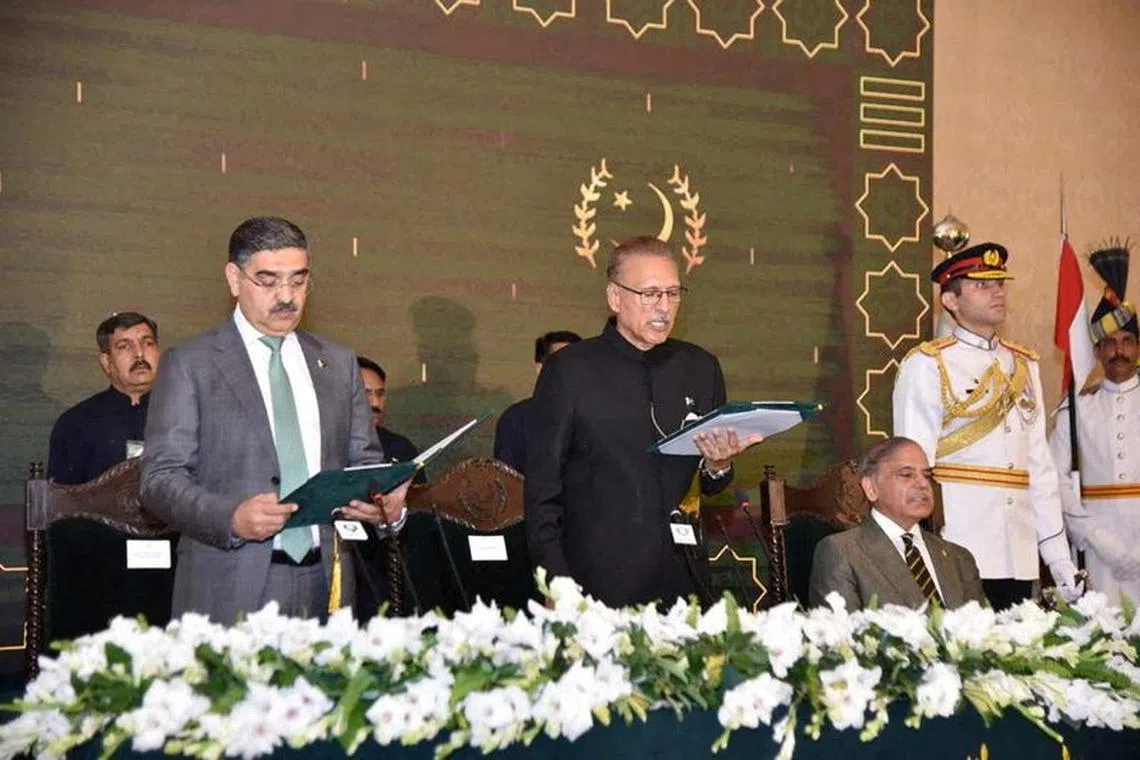Pakistan’s interim PM says Saudi Arabia to invest $34 billion over next five years
Sign up now: Get insights on Asia's fast-moving developments

Pakistan's caretaker Prime Minister Anwaar-ul-Haq Kakar (left) is attempting to revive a stalled privatisation process in the country.
PHOTO: REUTERS
Follow topic:
ISLAMABAD - Saudi Arabia will invest up to US$25 billion (S$34 billion) in Pakistan over the next two to five years in various sectors, Pakistan’s caretaker Prime Minister Anwaar-ul-Haq Kakar said on Monday and added that his government would also revive a stalled privatisation process.
The South Asian nation is embarking on a tricky path to economic recovery under a caretaker government after a US$3 billion loan programme, approved by the International Monetary Fund in July,
Mr Kakar, speaking with journalists at his official residence, said Saudi Arabia’s investment would come in the mining, agriculture and information technology sectors, and was a part of a push to increase foreign direct investment in Pakistan.
There was no immediate response to a Reuters request to the Saudi Arabian government for comment on Mr Kakar’s remarks.
If confirmed, a series of investments worth US$25 billion would be the biggest ever by the kingdom in Pakistan.
A long-time ally of Riyadh, Pakistan is dealing with a balance of payments crisis and requires billions of dollars in foreign exchange to finance its trade deficit and repay its international debts in the current financial year.
Mr Kakar did not specify projects Riyadh was looking at for investment, but in August Barrick Gold Corp said it was open to bring in Saudi Arabia’s wealth fund as one of its partners in Pakistan's Reko Diq gold and copper mine.
Pakistan’s untapped mineral deposits are conservatively valued at about US$6 trillion, said Mr Kakar whose government is meant to be an interim set-up to oversee national elections scheduled for November but are expected to be delayed by months.
Barrick considers the Reko Diq mine one of the world’s largest underdeveloped copper-gold areas and it owns a 50 per cent stake, with the remaining 50 per cent owned by the governments of Pakistan and the province of Balochistan.
Mr Kakar also said his government would push to complete two privatisation deals, probably for state-run power sector entities, in the next six months, and would also look to privatise another government owned enterprise outside the energy sector.
Pakistan’s state-owned enterprises have long been an area of concern, with bleeding financials adding to financial stress. The country added struggling state-run Pakistan International Airlines to the privatisation list again recently.
The privatisation process has largely stalled in the country, with selling of state assets a politically sensitive issue that many elected governments have shied away from. REUTERS

